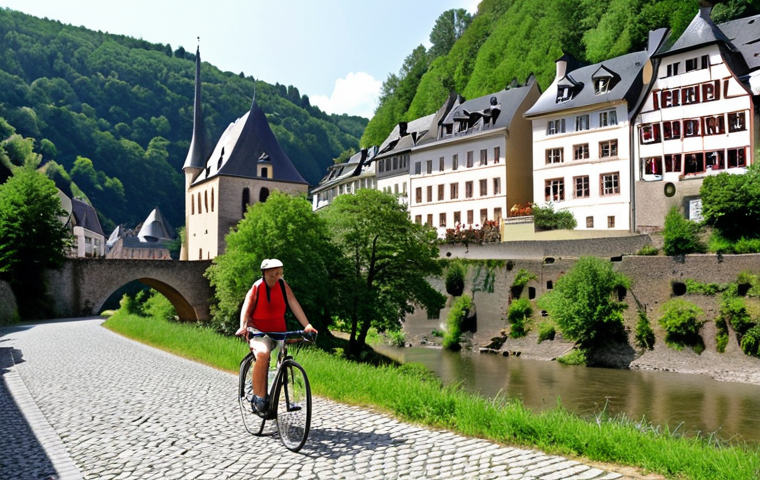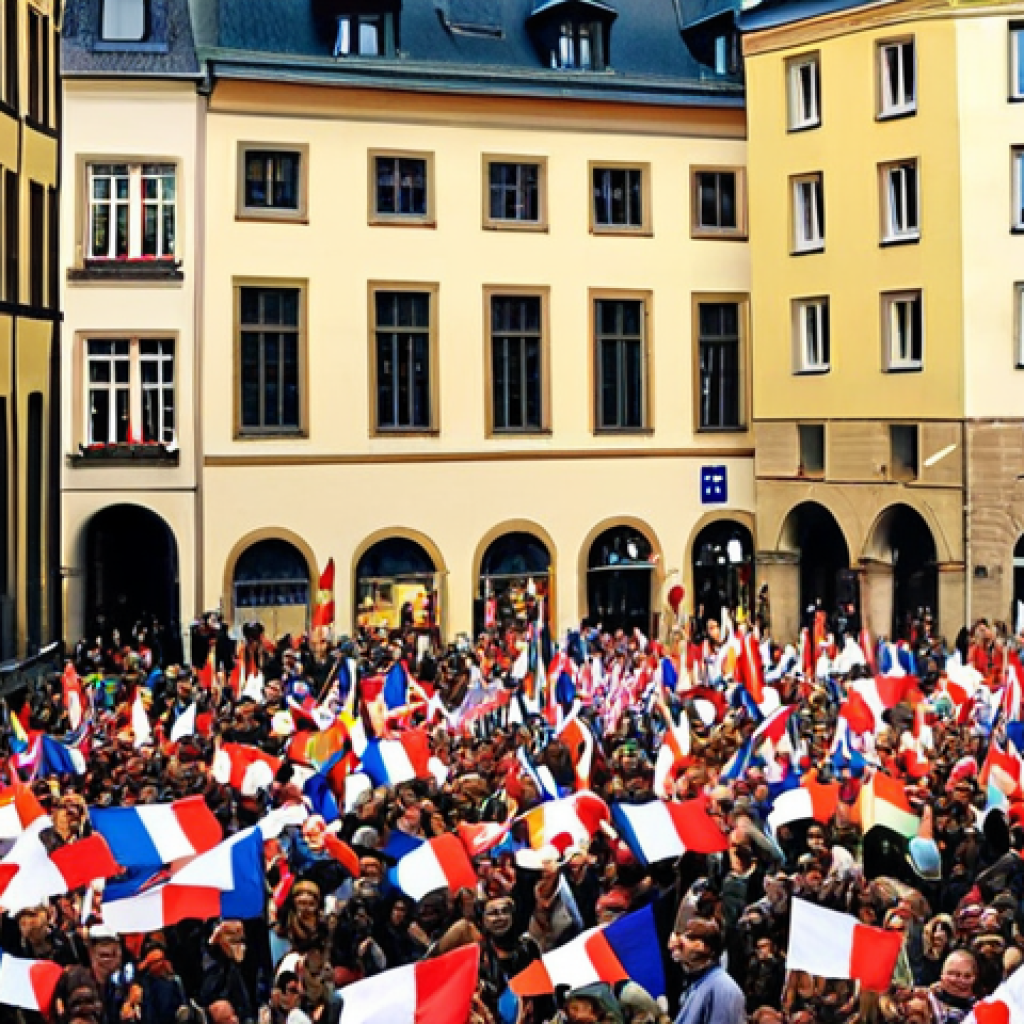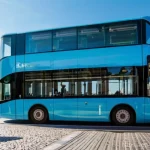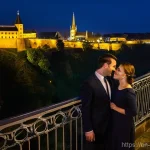You know, after years of juggling deadlines and chasing that elusive work-life balance, I’ve truly come to appreciate a well-placed public holiday. And let me tell you, Luxembourg, with its unique blend of deep-rooted tradition and incredibly international flair, really knows how to punctuate the year with genuinely meaningful breaks.
From what I’ve personally observed living and working in Europe’s dynamic landscape, these aren’t just arbitrary days off; they’re vital opportunities for everyone – whether you’re a local or an expatriate – to truly disconnect, immerse yourself in the Grand Duchy’s rich cultural tapestry, and genuinely recharge.
It’s fascinating how a country so pivotal in the global financial landscape still clings to these cherished moments of collective pause, reminding us all of the enduring importance of community and tradition in an increasingly fast-paced, digitally driven world.
This deep-seated commitment to collective well-being, baked right into the calendar, often feels like a refreshing counter-narrative to the relentless grind many of us face in today’s interconnected professional sphere.
Understanding these observances isn’t just about planning your next long weekend; it’s about grasping the very rhythm of life here and truly appreciating the thoughtful balance between work and rest.
Let’s dive deeper below.
What I’ve really come to appreciate about Luxembourg is how its public holidays aren’t just arbitrary dates marked on a calendar; they’re deeply ingrained moments that reflect the very soul of the Grand Duchy, offering everyone – locals and expats alike – a genuine chance to pause, reflect, and truly engage with the community.
Having spent a significant amount of time here, I’ve personally experienced how these breaks are expertly woven into the fabric of daily life, providing a much-needed respite from the fast pace of international business that so defines this unique nation.
It’s a remarkable balance, a testament to a society that values both productivity and profound cultural connection. These aren’t just days off to binge-watch a series, though you certainly can; they’re invitations to explore, to connect, and to rejuvenate, reminding us that there’s more to life than just the grind.
Beyond the Calendar: Why These Days Truly Matter

From my vantage point, having navigated the rhythms of many European cities, Luxembourg’s approach to public holidays feels distinctively different. It’s not just about the economic impact of a day off work, though that’s certainly a factor for businesses.
What I’ve genuinely felt here is a collective sigh of relief and a palpable shift in the energy of the city. People genuinely look forward to these days, not just for the rest, but for the chance to participate in local traditions, spend quality time with family, or simply to step back from the demands of their often high-pressure careers.
It’s a societal commitment to well-being that permeates everything, from the quiet hum of a Sunday morning to the lively festivities that often accompany these national pauses.
This deep-seated appreciation for rest and cultural celebration fosters a stronger sense of community and connection that is often hard to find in more sprawling, anonymous metropolises.
It genuinely feels like a carefully curated pause designed to nourish the collective spirit.
Embracing the Grand Duchy’s Unique Holiday Rhythms
Living here, you quickly realize that each public holiday carries its own unique flavour and significance, reflecting a rich tapestry of history, religious observance, and national pride.
Take National Day, for instance; it’s an explosion of joy, fireworks, and communal gatherings that you simply have to experience to understand. It’s not just a celebration of the Grand Duke’s birthday; it’s a profound expression of national identity, where Luxembourgers of all ages come together to celebrate their shared heritage with an almost childlike enthusiasm that is truly infectious.
Then there are the more solemn days, like All Saints’ Day, where families visit cemeteries, adorning graves with flowers and candles, creating a quiet, reflective atmosphere that underscores the importance of memory and tradition.
These variations ensure that the year is punctuated by a diverse range of experiences, preventing any sense of monotony and ensuring that each break offers something genuinely different for everyone.
It’s this thoughtful differentiation that makes the holiday calendar so effective at fostering well-being.
The Deep Wellspring of Tradition and Modernity
What I find particularly fascinating about Luxembourg is how it manages to honor deeply rooted traditions while simultaneously embracing its role as a modern, international hub.
Many of the public holidays have origins stretching back centuries, often tied to Catholic observances, yet they are celebrated in a way that feels inclusive and accessible to everyone, regardless of their background.
You’ll see centuries-old customs being performed in the very shadow of gleaming skyscrapers, a beautiful juxtaposition that speaks volumes about the country’s identity.
This seamless blend of old and new is not just visible in its architecture but is deeply embedded in its cultural psyche, particularly evident during these public holidays.
It’s a testament to a nation that prides itself on its heritage while looking confidently towards the future, inviting everyone to partake in its unique journey.
Strategic Pauses: Maximizing Your Luxembourgish Long Weekends
One of the immediate benefits that struck me when I first moved to Luxembourg was the sheer prevalence of long weekends, a true blessing for anyone looking to maximize their time off.
It’s not just about getting an extra day; it’s about the strategic placement of these holidays which often connect with a Friday or Monday, transforming a standard weekend into a mini-vacation opportunity without dipping into your precious annual leave.
I’ve personally used these extended breaks to explore the stunning Ardennes forests, cycle along the Moselle river, or even hop on a quick train to a neighboring European city, which is incredibly convenient from here.
This intelligent calendar design isn’t just a happy accident; it truly enhances the quality of life, offering regular intervals for mental and physical rejuvenation that significantly reduce the feeling of burnout.
It’s a subtle yet powerful incentive to stay refreshed and engaged, both professionally and personally.
Crafting Your Escapes: Local Exploration and Beyond
When these long weekends roll around, I find myself eagerly planning how to best utilize the extra day. Do I want to explore one of Luxembourg’s many charming castles, like Vianden, or perhaps delve into the vibrant art scene in the city?
Or maybe it’s the perfect opportunity for a spontaneous road trip through the beautiful Müllerthal region, often dubbed “Little Switzerland,” with its unique rock formations and hiking trails.
The beauty of Luxembourg’s central location means that a 3-day weekend can easily become a short adventure to Paris, Brussels, or even Cologne. I’ve personally found that having these regular, well-spaced breaks makes it much easier to maintain a healthy work-life balance, allowing me to return to my desk feeling genuinely refreshed and ready to tackle new challenges, rather than just dragging myself through the week.
It’s a feeling of true liberation that is hard to quantify.
The Art of the “Pont”: Bridging Gaps for Greater Rest
The French term “faire le pont” (to make the bridge) is a concept that truly thrives in Luxembourg. It refers to taking an additional day off to bridge a public holiday to a weekend, creating an even longer period of rest.
While not every public holiday falls perfectly for this, many do, and it’s a practice widely embraced here. I’ve noticed colleagues strategically using one or two days of their annual leave to create extended breaks, allowing for deeper relaxation or longer travel periods without depleting their leave too quickly.
This cultural acceptance of maximizing rest days truly contributes to a more relaxed and less stressed workforce. It speaks volumes about the value placed on personal time and well-being, a stark contrast to the ‘always-on’ culture I’ve experienced in some other parts of the world.
It’s a smart way to manage energy levels throughout the year.
Navigating the Grand Duchy’s Annual Rhythms: A Closer Look
Understanding the precise dates of Luxembourg’s public holidays is, of course, essential for planning, whether you’re organizing business meetings, personal travel, or simply looking forward to a day of leisure.
While many holidays are fixed, some, particularly those tied to Easter, shift each year, requiring a quick check of the calendar. What I’ve found helpful is keeping a digital calendar updated with these dates, as they truly dictate the rhythm of life here.
Banks will be closed, many shops will shut their doors, and public transport might run on a reduced schedule. It’s part of the charming ebb and flow of life in the Grand Duchy, and knowing these dates allows you to fully immerse yourself in the local pace, rather than being caught off guard.
It’s all part of adapting to the local customs and truly living like a local.
Key Observances Throughout the Year
To give you a clearer picture, here’s a snapshot of the major public holidays that punctuate the Luxembourgish calendar. These are the days when you’ll feel the city slow down, and many people will be out enjoying the atmosphere or spending time with loved ones.
| Holiday Name | Typical Date | Significance |
|---|---|---|
| New Year’s Day | January 1 | Start of the new year, often quiet reflection after celebrations. |
| Easter Monday | Variable (March/April) | Follows Easter Sunday, a religious observance and extended family time. |
| Labour Day | May 1 | International workers’ day, celebrated with events and parades. |
| Europe Day | May 9 | Celebration of European unity, often marked by official ceremonies. |
| Ascension Day | Variable (May/June) | Christian holiday, 40 days after Easter Sunday. |
| Whit Monday | Variable (May/June) | Christian holiday, 50 days after Easter, extends Pentecost weekend. |
| National Day | June 23 | Grand Duke’s Official Birthday, major national celebration with fireworks. |
| Assumption Day | August 15 | Christian holiday, often a quiet summer day for many. |
| All Saints’ Day | November 1 | Commemoration of the faithful departed, often visiting cemeteries. |
| Christmas Day | December 25 | Major Christian holiday, celebrated with family and feasting. |
| St. Stephen’s Day (Boxing Day) | December 26 | Follows Christmas, often a day for continued family gatherings. |
Practical Considerations: From Shops to Transport
My personal experience tells me that it’s always wise to plan ahead for these public holidays, especially if you rely on public services or need to do some urgent shopping.
On these days, most supermarkets and larger retail stores will be completely closed, so stocking up beforehand is a pro tip I’ve learned the hard way!
Smaller, independent bakeries or convenience stores might have reduced hours, but don’t count on them for a full grocery run. Public transport, while still running, often operates on a Sunday schedule, meaning less frequent services.
If you’re planning on dining out, it’s always a good idea to check opening hours or make reservations, as many restaurants will also close or operate with limited staff.
Being prepared simply allows you to fully embrace the slower pace and truly enjoy the day without any last-minute stress or inconveniences.
Embracing Luxembourg’s Unique Holiday Spirit
What truly sets Luxembourg’s public holidays apart, in my opinion, is the genuine, unpretentious spirit with which they are celebrated. It’s not about grand, commercialized spectacles but rather about community, tradition, and quality time.
I’ve seen families picnicking in parks, friends gathering for relaxed brunches, and children playing freely in the streets that are usually bustling with traffic.
It’s a testament to a society that understands the profound importance of collective pauses and cherishes the opportunity to connect on a deeper level.
This genuine embrace of leisure and social connection is a refreshing antidote to the constant pressure many of us feel in our professional lives, and it’s something I’ve come to deeply admire and appreciate about life here.
It truly feels like a shared understanding that these moments are precious and worth savoring.
From Local Festivities to European Unity: A Cultural Tapestry
Beyond the officially designated public holidays, Luxembourg also celebrates a multitude of local festivals and events that further enrich the cultural calendar.
While not official days off, these often fall on weekends and contribute to the vibrant atmosphere. Think about the annual “Schueberfouer,” the massive funfair in late summer, or the local wine festivals in the Moselle region.
These events, combined with the national public holidays, paint a picture of a country deeply proud of its heritage and keen to share it. Furthermore, as the administrative heart of the European Union, there’s an underlying current of European unity that subtly permeates the way holidays are observed.
Europe Day, May 9th, is an official public holiday here, a unique feature that underscores Luxembourg’s pivotal role in the continent’s integration and its commitment to a shared future.
It’s a subtle yet powerful reminder of the broader context within which life here unfolds.
A Personal Reflection: What These Breaks Truly Offer
For me, these public holidays in Luxembourg have transformed from mere dates on a calendar into genuine anchors in my year, offering vital moments for personal renewal and cultural immersion.
I’ve used them to disconnect from screens, read books I’ve been meaning to get to, or simply enjoy the quiet beauty of a city momentarily freed from its usual hustle.
They’ve also been invaluable for exploring the country’s hidden gems and understanding the nuances of Luxembourgish culture far beyond the surface level.
It’s in these moments of quiet reflection and shared celebration that I’ve felt most connected to this place, understanding that the value of these days off extends far beyond just rest; they are opportunities to truly live, to experience, and to appreciate the unique rhythm of life in the Grand Duchy.
They offer a chance to recharge the soul, not just the body, and that, I’ve found, is truly priceless.
Wrapping Up
Reflecting on my time here, it’s clear that Luxembourg’s public holidays are far more than just days off; they’re essential components of a lifestyle that prioritizes well-being, cultural connection, and thoughtful rejuvenation.
They provide a vital rhythm to the year, allowing everyone to truly slow down, recharge, and engage with the rich tapestry of the Grand Duchy. I’ve personally found these deliberate pauses incredibly beneficial for maintaining balance in an often demanding professional environment.
They offer a unique blend of tradition and modernity, inviting us all to appreciate the nuanced beauty of life in this remarkable country.
Useful Information to Keep in Mind
1.
Always double-check the official Luxembourg public holiday calendar. While many dates are fixed, some, like Easter Monday and Ascension Day, are variable and shift annually, which can impact your planning for both work and leisure.
2.
Remember that most major supermarkets and retail stores will be closed on public holidays. It’s a good practice to do your grocery shopping a day or two in advance to avoid any last-minute stress or inconvenience.
3.
Public transport schedules are often reduced to a Sunday service on public holidays. If you’re relying on buses or trains, factor in longer wait times and fewer connections, especially if you’re traveling outside the city center.
4.
Many banks and official institutions will also be closed. If you have any financial transactions or administrative tasks, ensure you complete them beforehand or plan around these closures.
5.
Embrace the “faire le pont” (making the bridge) concept! If a public holiday falls near a weekend, consider using a day or two of your annual leave to create an extended break, allowing for a longer, more restorative escape.
Key Takeaways
Luxembourg’s public holidays are integral to its unique quality of life, offering strategic pauses for rest and cultural immersion. They seamlessly blend deep-rooted traditions with modern international life, fostering a strong sense of community and well-being.
These carefully planned breaks provide invaluable opportunities for both local exploration and wider European travel, significantly enhancing work-life balance and overall personal rejuvenation.
Frequently Asked Questions (FAQ) 📖
Q: Why are public holidays in Luxembourg considered such vital and meaningful breaks, especially for a country so prominent in global finance?
A: You know, it’s something I’ve truly come to appreciate about Luxembourg – despite being this absolute powerhouse in the global financial scene, it holds onto its public holidays with such genuine reverence.
It’s not just about an extra day off; there’s this palpable sense of collective exhale. I’ve seen it firsthand: these days are a deliberate, almost sacred pause.
They act as this wonderful counterpoint to the relentless pace of a globalized economy, reminding everyone, locals and expats alike, that there’s more to life than just the grind.
It truly feels like the country deliberately bakes well-being and tradition right into the calendar, which, honestly, is incredibly refreshing when you’re used to a constantly ‘on’ professional world.
It’s a commitment to ensuring people genuinely disconnect and recharge, which, for me, is the real magic of it all.
Q: How do Luxembourg’s public holidays specifically cater to both locals and the large expatriate community in fostering well-being and cultural connection?
A: That’s a fantastic point, and honestly, it’s one of the things that makes living here so unique. When I first moved here, I wondered if these holidays would feel exclusive, but it’s quite the opposite.
From what I’ve experienced, these aren’t just local festivals; they’re genuinely universal opportunities. For both the long-standing residents and those of us from abroad, they offer this incredible chance to step back from our desks and truly immerse ourselves.
Whether it’s strolling through a centuries-old village during a local fete or simply taking a long walk in the stunning Ardennes, these breaks are implicitly designed for everyone to disconnect and genuinely recharge their batteries.
There’s a shared sense of pause, a collective sigh of relief, that transcends cultural backgrounds, making it easier for expats to feel a part of the rhythm here and for locals to reinforce their traditions.
It’s not just about a day off; it’s about a shared experience of slowing down and appreciating what this Grand Duchy has to offer.
Q: Beyond just a day off, what deeper cultural or lifestyle insights can one gain by understanding Luxembourg’s approach to public holidays?
A: Oh, this is where it gets really interesting for me. It’s definitely not just about marking your calendar for a long weekend – though, let’s be real, those are always welcome!
What I’ve learned, having been here for a while, is that understanding these holidays is truly about grasping the very pulse of life in Luxembourg. It reflects this deep-seated value for community and tradition that persists even in such a cutting-edge, digitally-driven nation.
You see it in how businesses genuinely shut down, how families gather, and how the streets take on a different, calmer vibe. It’s a refreshing counter-narrative to the relentless professional grind so many of us navigate daily.
It really highlights their thoughtful commitment to a balanced life, where moments of collective pause are cherished and seen as essential for overall well-being.
It’s a subtle but powerful reminder that amidst all the global hustle, there’s immense value in slowing down, connecting, and appreciating the fabric of daily life.
📚 References
Wikipedia Encyclopedia
구글 검색 결과
구글 검색 결과
구글 검색 결과
구글 검색 결과






